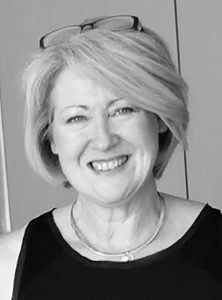Research agendas change throughout the years. Historical context and economics play a distinct part in what is placed on the priority list. Presently, gender is on top.Keeping in line with the ‘gender mainstreaming’ policies within the EU, researchers are now being asked to put on their ‘gender lens’.
For many researchers, the first response is: what does ‘gender’ have to do with their project and/or discipline? The reality is that gender is the common variable we all share. Firstly, we all have a gender. We as researchers do bring our biographies to our research, and that includes our gender. Secondly all research can be given a ‘gender lens’. From architecture to engineering, theatre studies to medicine, dance to ICT—we can ask gender-focused questions about our discipline.

Horizon 2020 is the largest EU funding programme to date, providing grants to research and innovation projects in areas of basic science, industrial leadership, and societal challenges. Gender is a cross-cutting issue which is part of the funding criteria throughout the different parts of the work programme. The EU’s strategy is to compel researchers to think in gendered terms about the shape and meaning of the research questions in their discipline. Researchers are also obliged to think about gender balance and roles in the structure of their teams. The main objectives of this strategy are to close the gap between the levels of participation for women and men, and to improve scientific quality, ensuring that research products have increased societal relevance.
At the University of Malta, the Department of Gender Studies (Faculty of Social Wellbeing) wants to support any researchers who wish to put on their ‘gender lens’. Our raison d’être, as a department, is to introduce gender into every discipline. For example, currently, we are working actively with STEAM (science, technology, engineering, art, and maths) projects to encourage a greater female uptake in traditionally male-predominated disciplines. We are also collaborating in dance, digital arts, and anthropology, and running workshops for young girls in robotics and drama. We practice what we preach, and gender mainstreaming is integrated into our research, outreach, and activism. We work inter-departmentally with academics and stakeholders to research and publish, as well as organise events, all the while providing and receiving input concerning gendered issues. In March, in collaboration with the Gender Issues Committee, a Symposium on Gender Mainstreaming was held as one of the steps in raising awareness and flagging the need for us all to put on the essential ‘gender lens’.
By adopting gender mainstreaming, the University of Malta can reveal weak spots that need to be changed. In practice, this should prompt organisational changes in structure, procedures, and cultures which are conducive to the promotion of gender equality. In turn, this will produce a space for women and men to influence, fully participate in, and benefit from working within academia.





Comments are closed for this article!